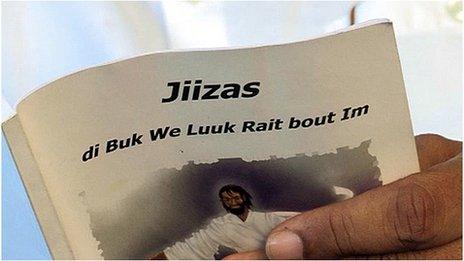Sean Paul: 'Language barrier' a problem for dancehall artists
- Published
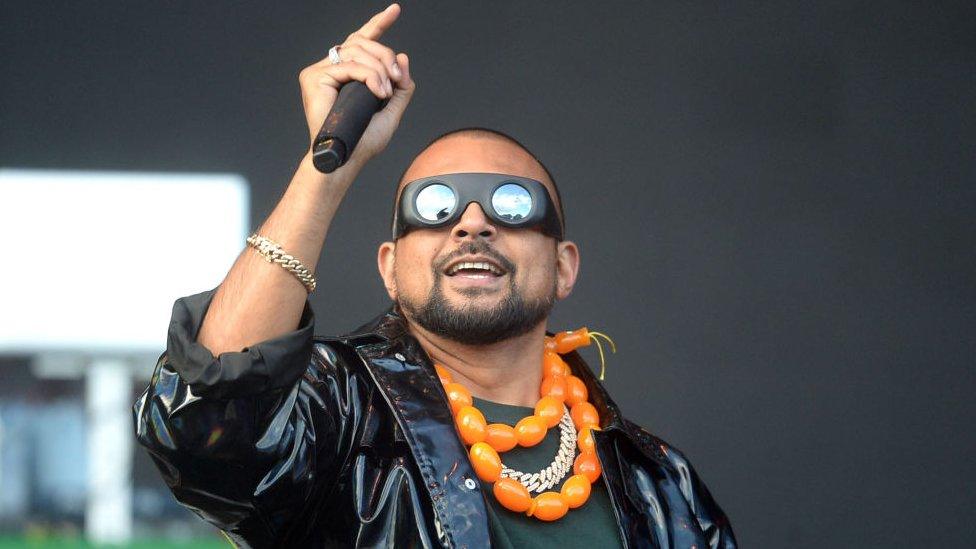
Sean Paul says a "language barrier" is one of the reasons dancehall artists fail to make it big in the UK and US.
He believes it's hard for some people to understand "hardcore patois" - which is a mixture of several languages, including English, spoken in Jamaica.
But he says dancehall has set a trend - big acts like Justin Bieber and Drake have been influenced by its sound.
"One day we are going to get people logging on back to what we do," Sean Paul tells Radio 1 Newsbeat.
To fans of dancehall, Sean Paul will always be known for his hardcore tunes such as Get Busy, Temperature and Gimme The Light from the early 2000s.
But over the last few years he's had some big chart hits with massive pop stars including Dua Lipa (No Lie), Sia (Cheap Thrills) , Little Mix (Hair) and Clean Bandit (Rockabye).
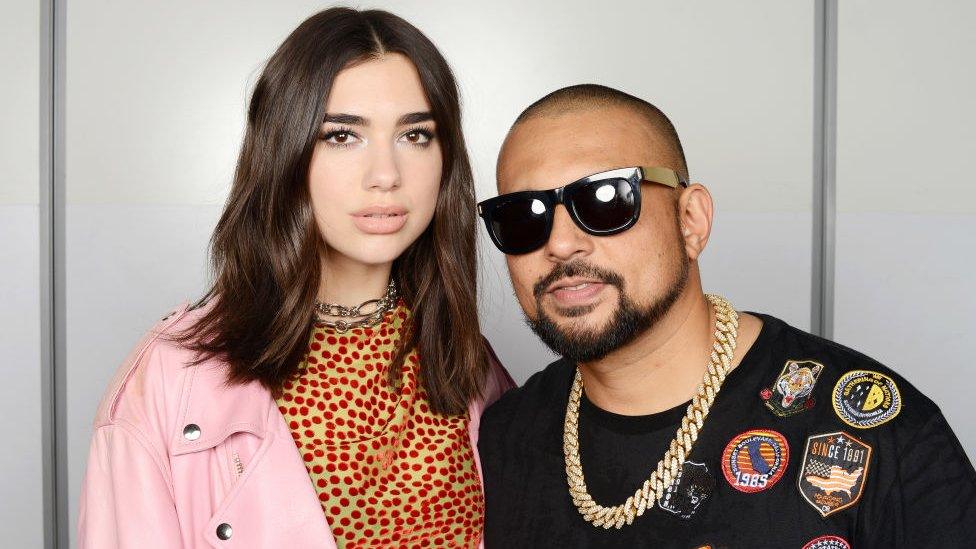
Sean Paul's song No Lie featuring Dua Lipa reached number 10 in the UK charts
And this year he played on the John Peel Stage at Glastonbury as well as the main stage at Radio 1's Big Weekend.
But Sean Paul says he's had his fair share of failures too.
"It's been a long journey for me. I keep my ears to my ground and listen.
"There's been a lot of times that I did lose, a lot of times that I never really won with the song and failed.
"People remember those but I think the story of the glory is pretty cool and a lot of the songs reached the glory stage, so big up to everyone who helped me to be that."
Allow Instagram content?
This article contains content provided by Instagram. We ask for your permission before anything is loaded, as they may be using cookies and other technologies. You may want to read Meta’s Instagram cookie policy, external and privacy policy, external before accepting. To view this content choose ‘accept and continue’.

Dancehall's influences can be heard on many big hits such as Rihanna's Work, Drake's Controlla, Wiley's Boasty (which features Sean Paul) and Ed Sheeran and Justin Bieber's I Don't Care.
But very few dancehall artists manage to break into the main UK and US music charts.
Sean Paul thinks part of the reason is down to the way some Jamaicans speak.
"I'm able to speak in a little tongue where someone can understand me," he says.
"Sometimes a lot of people still gravitate towards my music and say 'I don't understand what you're saying' but they get the gist of it.
"People speaking in hardcore patois, it's kind of hard for people to understand so that's a big factor.
"But it's like the Latin music right now. A lot of people here don't speak Spanish but people get it."
Allow YouTube content?
This article contains content provided by Google YouTube. We ask for your permission before anything is loaded, as they may be using cookies and other technologies. You may want to read Google’s cookie policy, external and privacy policy, external before accepting. To view this content choose ‘accept and continue’.
Sean Paul is hoping to help other dancehall artists make it big - he's just signed Jamaican star Chi Ching Ching to his record label Dutty Rock Productions.
He says dancehall music has "set a trend" over the years and is still influencing the current popular sounds - such as reggaeton, pop and afrobeats.
He believes the genre will have its own comeback again soon.
"What we do comes from Africa but also the vibe that we set, it's been followed right now," he says.
"Big up to afrobeats - I love it but I know it's kind of come from what we've done.
"Afrobeats didn't sound like that 10 or 12 years ago.
"We just feel proud of that fact and we humbly wait for our turn to make the city burn again."


Follow Newsbeat on Instagram, external, Facebook, external, Twitter, external and YouTube, external.
Listen to Newsbeat live at 12:45 and 17:45 weekdays - or listen back here.
- Published5 August 2018
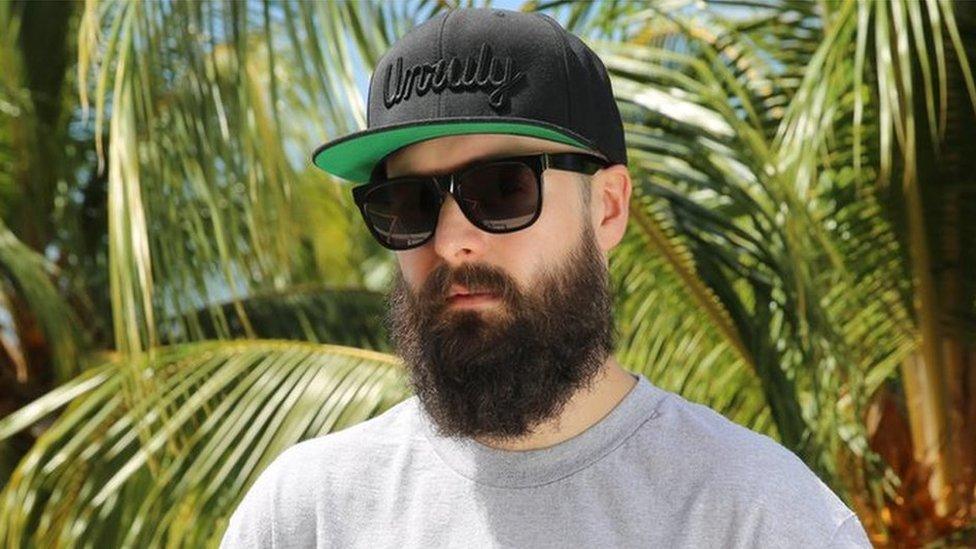
- Published26 August 2018
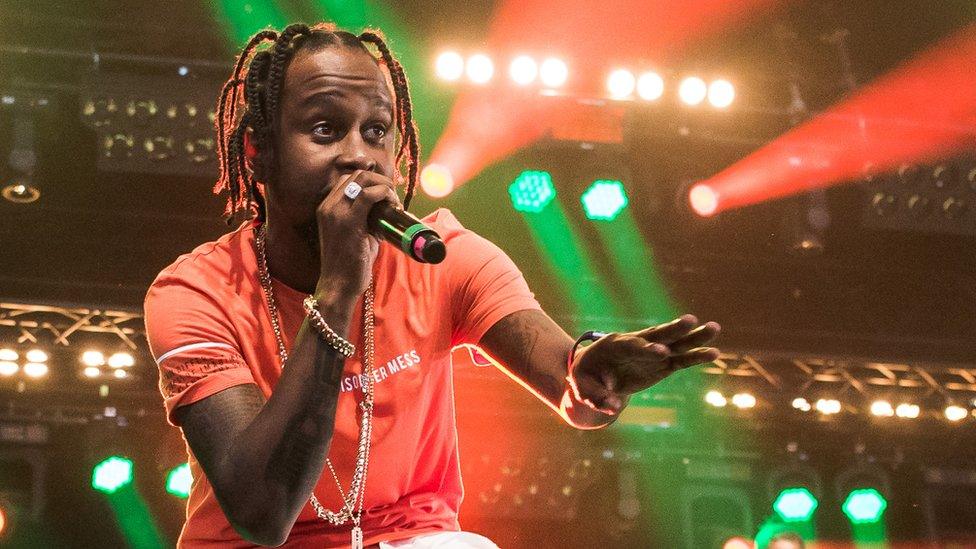
- Published14 March 2014
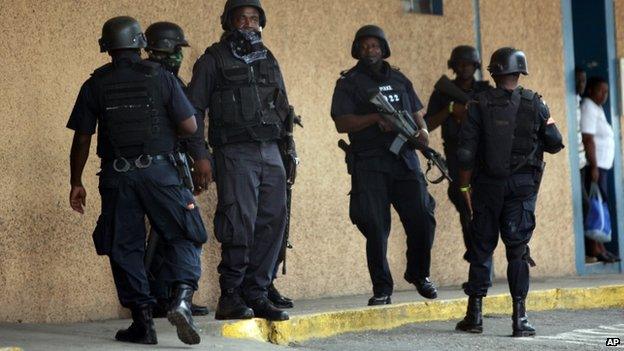
- Published25 December 2011
